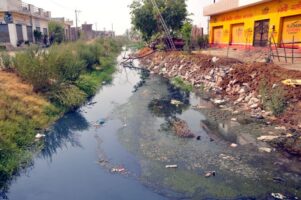THE IMPORTANCE OF PUBLIC AWARENESS IN WATER POLLUTION CONTROL
Water is the essence of life, covering over 70% of our planet’s surface and constituting a vital resource for all living organisms. However, this precious resource is under constant threat from various forms of pollution, posing significant risks to both environmental and human health. One of the most effective ways to combat water pollution is through public awareness and education. In this article, we will explore the critical role of public awareness in water pollution control.
1. Understanding Water Pollution
Public awareness is the first step towards addressing water pollution. Many people are unaware of the various pollutants that contaminate our water sources, including industrial runoff, agricultural chemicals, and untreated sewage. Education can help individuals comprehend the gravity of this issue and understand how their daily activities can contribute to or mitigate water pollution.
2. Promoting Responsible Behavior
When people become more informed about the causes and consequences of water pollution, they are more likely to adopt responsible behaviors. This may include reducing the use of harmful chemicals, properly disposing of waste, and supporting policies and practices that protect water quality.
3. Empowering Advocates
Public awareness can create a cadre of advocates for water pollution control. Informed citizens are more likely to engage with local and national governments, environmental organizations, and community initiatives to drive change. By working together, these advocates can hold industries and governments accountable for their actions and push for stricter regulations.
4. The Role of Education
Schools and educational institutions play a crucial role in raising public awareness. By incorporating water pollution topics into curricula and organizing educational campaigns, students can learn about the issue from a young age, fostering a sense of responsibility for the environment. This knowledge can then be disseminated to families and communities.
5. Access to Information
The digital age has made it easier for individuals to access information about water pollution. Government agencies and environmental organizations can use websites, social media, and mobile apps to provide real-time data on water quality, pollution sources, and health risks. This information empowers individuals to make informed choices about their water usage and to stay away from contaminated sources.
6. Community Engagement
Public awareness fosters community engagement. Local communities are often the most impacted by water pollution, making them powerful agents of change. They can organize clean-up efforts, support initiatives to protect water sources, and demand accountability from local industries. This sense of collective responsibility can lead to more effective pollution control measures.
7. Encouraging Sustainable Practices
Public awareness can drive the adoption of sustainable practices that prevent water pollution. These practices include eco-friendly agriculture, responsible industrial processes, and reduced consumption of single-use plastics. Through public pressure and consumer choices, businesses are more likely to adopt these sustainable practices.
8. Political Influence
In democracies, informed citizens can influence political decisions related to water pollution. They can vote for candidates who prioritize environmental protection, support policies that regulate pollutants, and demand transparency from government agencies responsible for water quality management.
9. Long-Term Preservation
Water pollution control is not a short-term endeavor. It requires consistent efforts over many years. Public awareness serves as the foundation for a long-term commitment to preserving our water resources, ensuring that future generations can enjoy clean and safe water.
10. A Global Effort
Water pollution is a global problem that transcends borders. Public awareness not only drives local action but also fosters a sense of global citizenship. People from all over the world can share knowledge, strategies, and solutions to combat water pollution on a larger scale.
In conclusion, the importance of public awareness in water pollution control cannot be overstated. It is the catalyst for understanding, behavioral change, advocacy, and community action. By educating and empowering the public, we can work together to protect our water resources and secure a sustainable future for generations to come. Water pollution is a global problem, but with informed and engaged citizens, we have the power to make a significant difference in its control and prevention.


